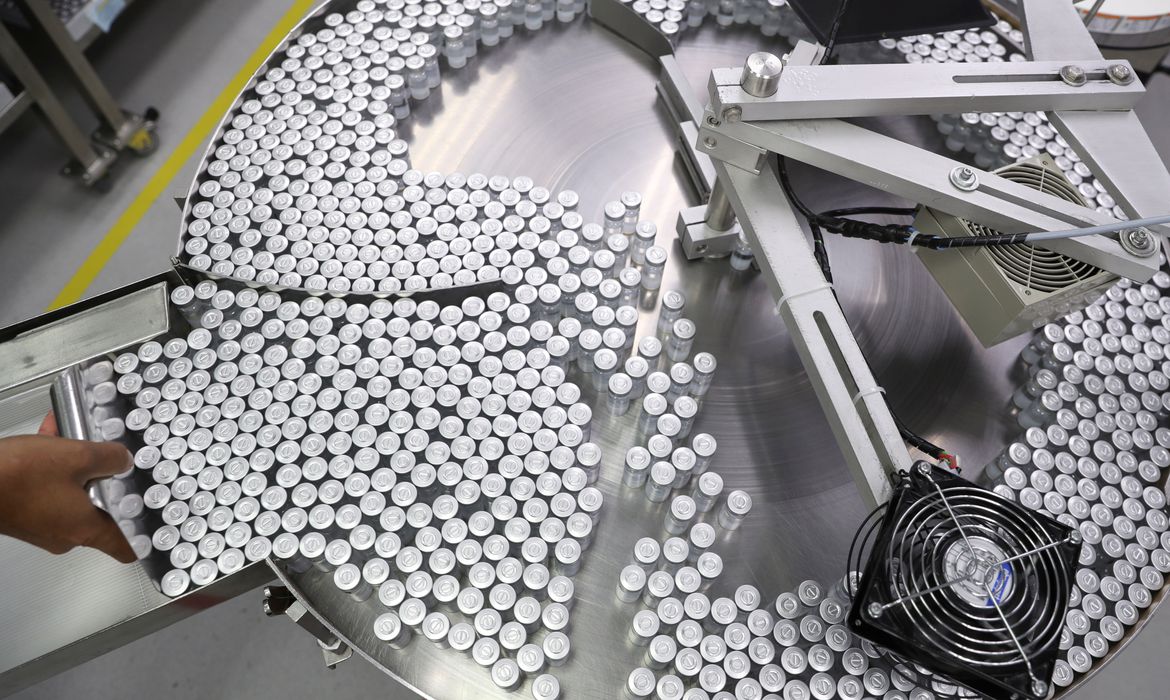RIO DE JANEIRO, BRAZIL – The Oswaldo Cruz Foundation (Fiocruz) on Thursday, May 20, suspended production of the Oxford/AstraZeneca vaccine due to a raw material shortage. Fiocruz is expecting the arrival from China of a shipment of the active pharmaceutical ingredient (API) on Saturday, May 22, to restart production.
On Friday, May 14, the Butantan Institute in São Paulo had also completely suspended the production of the CoronaVac vaccine due to a raw material shortage.

Assuming the shipment of API arrives as expected, Fiocruz production will restart on Tuesday, May 25.
AstraZeneca and CoronaVac are the only two vaccines produced in Brazil under the Ministry of Health’s National Immunization Program (PNI). Pfizer’s vaccine is imported from the United States.
This Friday, Fiocruz is expected to deliver another 5.3 million doses of the Covid vaccine to the Ministry of Health. With this delivery, the foundation will reach the mark of 40 million doses delivered.
Butantan is waiting for the Chinese government to release a batch with 10,000 liters of API, equivalent to 18 million doses, to resume production.
Currently, the Fiocruz production capacity amounts to approximately 1 million doses per day.
According to a statement from the institution, the temporary interruption is not yet expected to impact future deliveries. “The delivery schedule remains weekly, always on Fridays, as agreed with the Ministry of Health, following the distribution logistics defined by the portfolio.”
After four months of vaccination against Covid-19 in Brazil, only 39% of seniors over 60 years of age have been vaccinated with the two doses in Brazil, considering all the vaccines.
The data were collected from the OpendataSUS database, a Ministry of Health system in which all doses administered are recorded.
When expanding the analysis to the entire priority group, which totals just over 78 million people according to the National Vaccination Program’s latest update, it is noted that 45% have been administered the first dose, and only 20% can be considered fully immunized for having also been vaccinated with the second dose.
Health professionals, the elderly over 60 years of age, pregnant women, and indigenous people, among other categories recently included, are considered the priority group.
Efficient vaccination is the main weapon to avert a third wave of coronavirus cases and deaths. The potential for a new wave was raised by Fiocruz, in an extraordinary report from the foundation’s Covid-19 Observatory.
“The observed maintenance of a high level, despite the slight reduction in the pandemic criticality indicators, calls for all care to be maintained, because a third wave now, with rates still so high, could represent an even more serious health crisis,” the document states.

